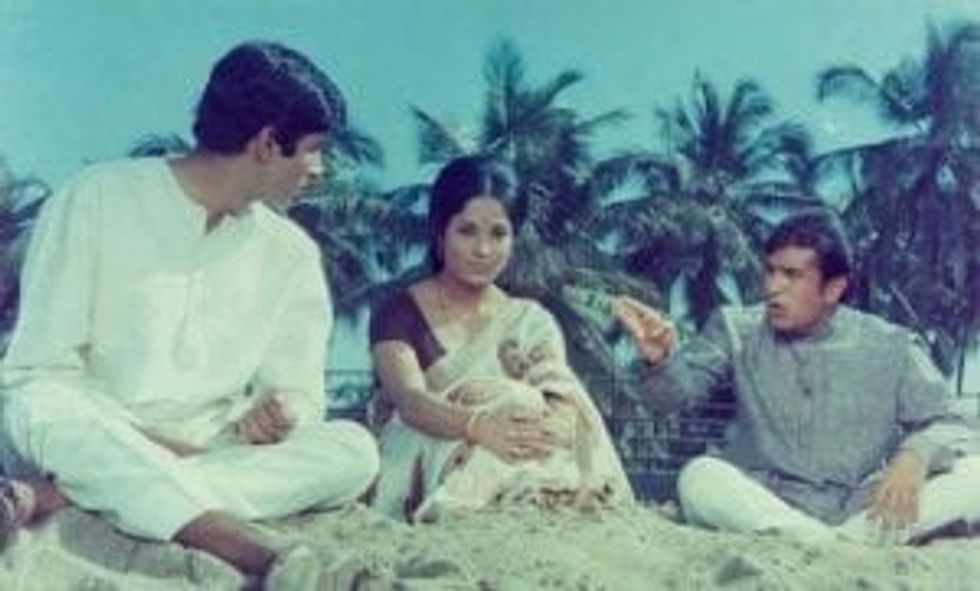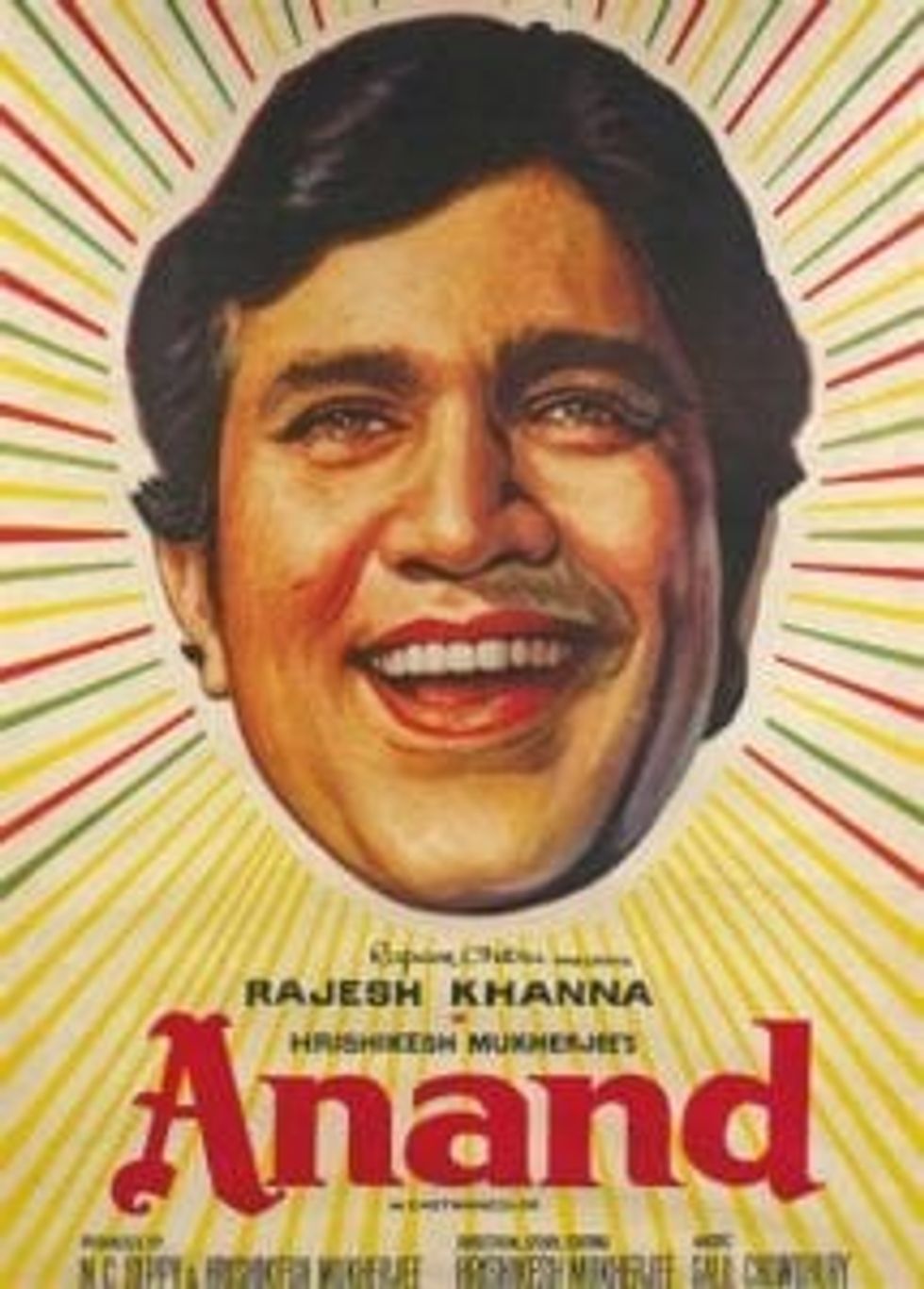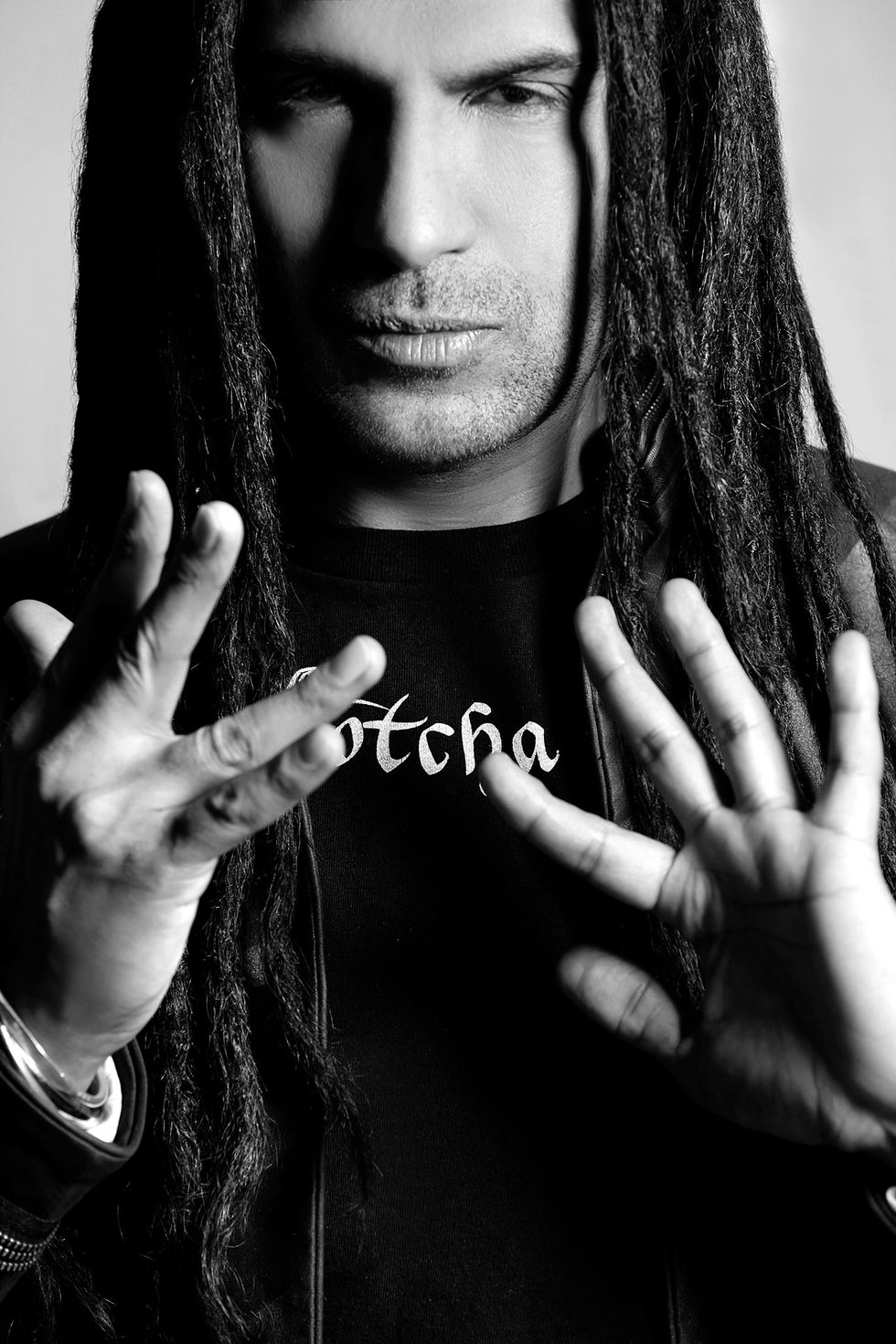HOW A FRIENDSHIP LED HRISHIKESH MUKHERJEE TO MAKE A CLASSIC
by ASJAD NAZIR
ON MARCH 12, 1971 an unknown young man went to fill his car with petrol in the morning and was lost in the crowd.
Later that day when he returned to the same Mumbai petrol station, those present began to recognise his face and it was his first taste of stardom. That 29-year-old was Amitabh Bachchan and those who recognised him had seen his film Anand, which had released earlier that day. The iconic classic headlined by then superstar Rajesh Khanna would go on to be regarded as one of the greatest Bollywood releases ever made and influence many movies that followed, including Shah Rukh Khan blockbuster Kal Ho Naa Ho (2003).
As Anand celebrates its 50th anniversary on March 12, 2021, Eastern Eye looked back at the making of the multi award-winning movie and the ground-shaking impact it had.
The legend of Anand began with an aspiring filmmaker named Hrishikesh Mukherjee, who had slowly risen up in the Bollywood ranks, working as a cameraman, editor and assistant director. He finally made his directorial debut with Musafir (1957), but it didn’t do the expected business despite having a strong star cast and could have signalled the end of his filmmaking career.
Luckily, A-list star Raj Kapoor saw something in the commercial failure and got Mukherjee to direct his film Anari (1959), which would become a runaway success. Mukherjee never forgot what Raj Kapoor had done for him and they formed a firm friendship that would last a lifetime.
The writer-director got traumatised when his close confidant Raj Kapoor became seriously unwell and channelled that emotion into writing Anand, a story about a dying man and his friendship with a doctor. The story had many moments taken from their lives, including the Babu Moshai pet name used by the protagonist for his friend.
The meaningful story lay dormant for a decade, while Mukherjee directed commercial Bollywood films with limited success. The more commercial movies not doing well and a deep desire to do story-driven driven films led Mukherjee towards making meaningful stories he believed in, which meant he was finally ready for Anand.
The obvious first choice to play lead role was Raj Kapoor, but it would be too painful for him to make a movie where his best friend dies and also by this time, he had become too old for the role. So, Raj Kapoor’s younger brother Shashi Kapoor was considered for the title role, but things didn’t work out. Kishore Kumar was in the running, but a misunderstanding put an end to that and then big-named star Dharmendra was promised the title role.
But by now, Rajesh Khanna had heard about the story and put himself forward. It would be impossible for Mukherjee to say no, as Khanna had become by far the biggest Bollywood star and was generating the kind of mania not seen before.
Khanna loved the story and was so keen to act in Anand that he slashed his high asking fee. Then the search was on for an actor to play the protagonist’s Bengali best friend and established actors like
Uttam Kumar were considered. Mukherjee took on the inspired gamble of casting newcomer Amitabh Bachchan, who was struggling to get any kind of meaningful roles. In fact, Bachchan had been ejected from Mukherjee’s movie Guddi, which would turn his future wife Jaya Bhaduri into a big star.
Bachchan knew acting opposite Bollywood’s biggest star was the break he was waiting for and got his close friend Mehmood, an established star, to coach him. Then astonishingly, in just 28 days the story of a terminally ill man looking death in the face, with a big smile and teaching others to appreciate life, was complete.
At the heart of the emotional feel-good film was the story of a friendship and loving life. It was dedicated to Mukherjee’s two best friends Raj Kapoor and Mumbai city. The movie was a runaway success and there wasn’t a dry eye in the house when the cancer-stricken protagonist finally passes away.
Anand would win a prestigious National Award for Best Film. It would win multiple Filmfare Awards, including for Best Film, Best Actor (Rajesh Khanna) and Best Supporting Actor (Amitabh Bachchan). It would also win Filmfare Awards for editing, dialogue and story.
Although the movie was an instant box office success, the biggest impact would happen in subsequent years. Other films would copy the theme of generating emotion by killing off the main protagonist, including with a terminal illness.
Anand would invent a new genre of Bollywood films that found the middle ground between commercial entertainers and lower-budget story driven art house films. The king of this genre was Mukherjee himself, following up Anand with huge unforgettable classics like Guddi (1971), Bawarchi (1972), Abhimaan (1973), Namak Haram (1973), Chupke Chupke (1975), Mili (1975), Golmaal (1979) and Khubsoorat (1980). The themes and techniques of Anand would influence filmmakers, including a new wave wanting to add realism into cinema and a feel-good energy.
Anand would also inspire movies like Kal Ho Naa Ho (2003), which would revolve around a terminally ill man teaching others to love life. But the biggest winner was Amitabh Bachchan, the young man who no one had recognised at the petrol station.
Two years later, he would dethrone Rajesh Khanna to become Bollywood’s biggest name and would start a journey that would turn him into India’s most successful star in history. He would do some of his best work with Mukherjee, who gave him meaningful roles away from mega-blockbusters.
Even today, when most of those connected with Anand are no more, Bachchan, like all of us, will look back with fondness on a film that taught us to love life even during the darkest times, a message that is needed today more than ever.








 Sea levels around the UK are now rising faster than the global averageUS EPA
Sea levels around the UK are now rising faster than the global averageUS EPA










 A cookery theatre presented by television chef Parveen the Spice QueenRFMP
A cookery theatre presented by television chef Parveen the Spice QueenRFMP The mela will feature live music, street food, cookery demos, fashion stalls, and a funfairRFMP
The mela will feature live music, street food, cookery demos, fashion stalls, and a funfairRFMP

